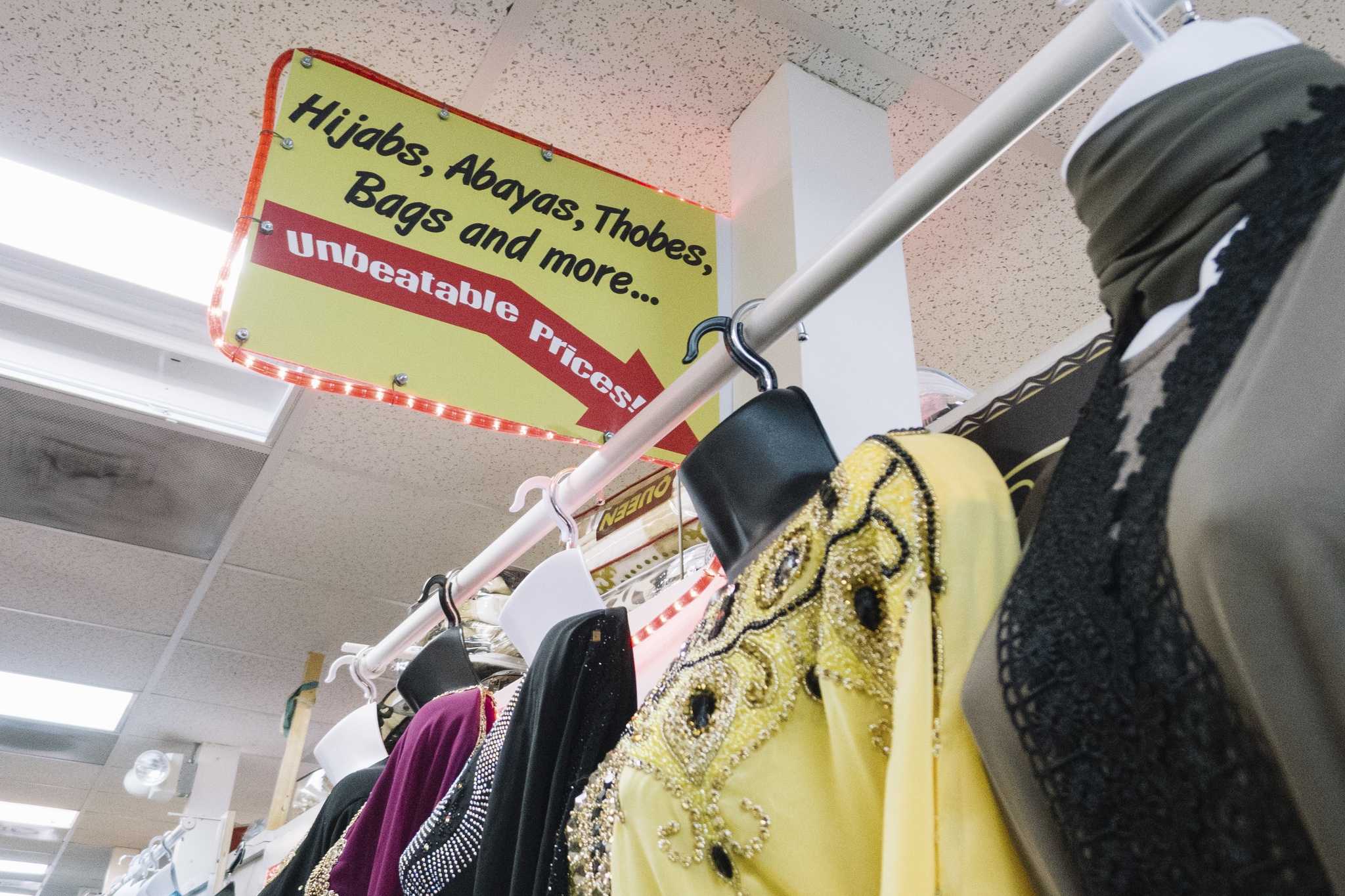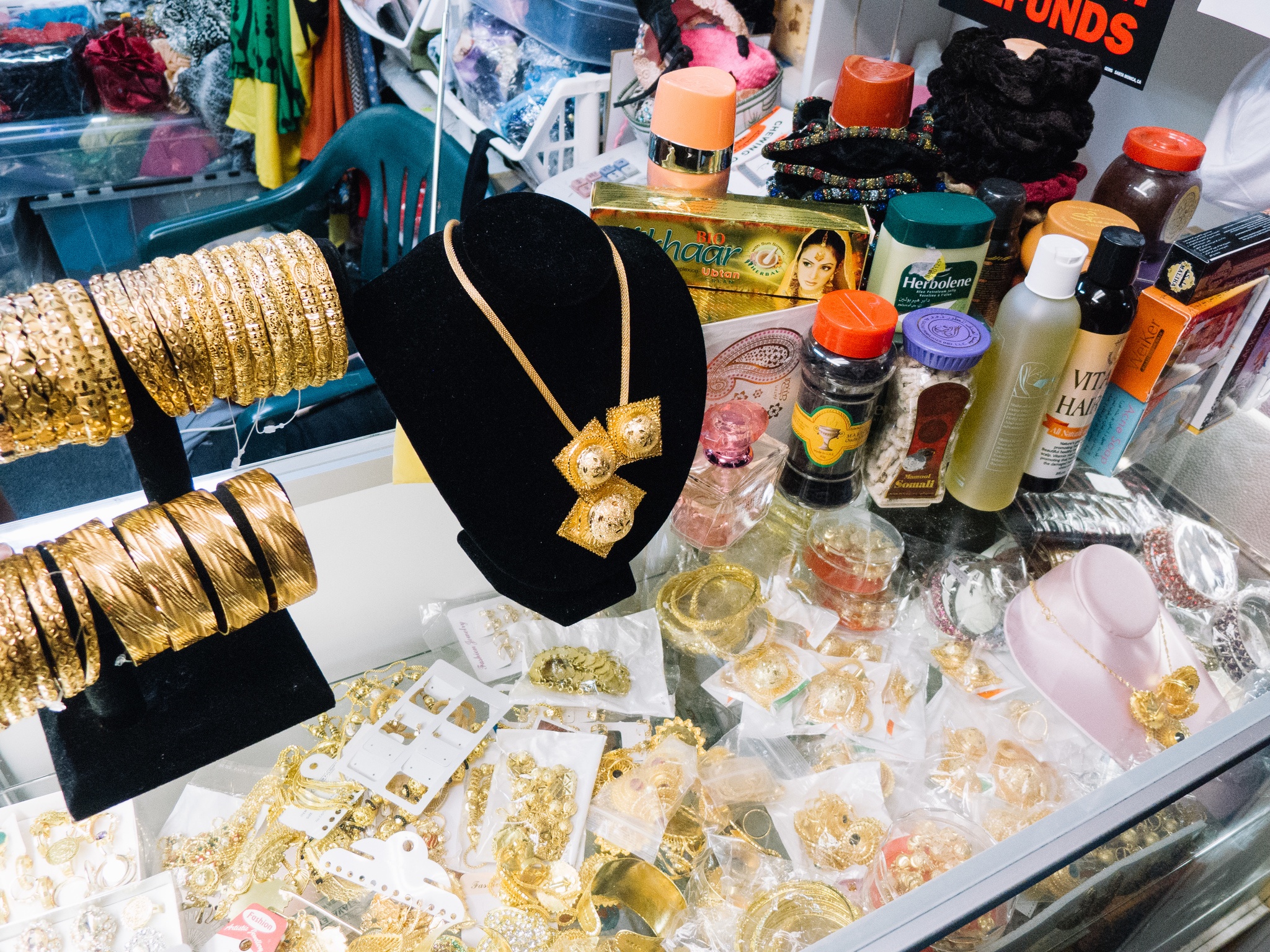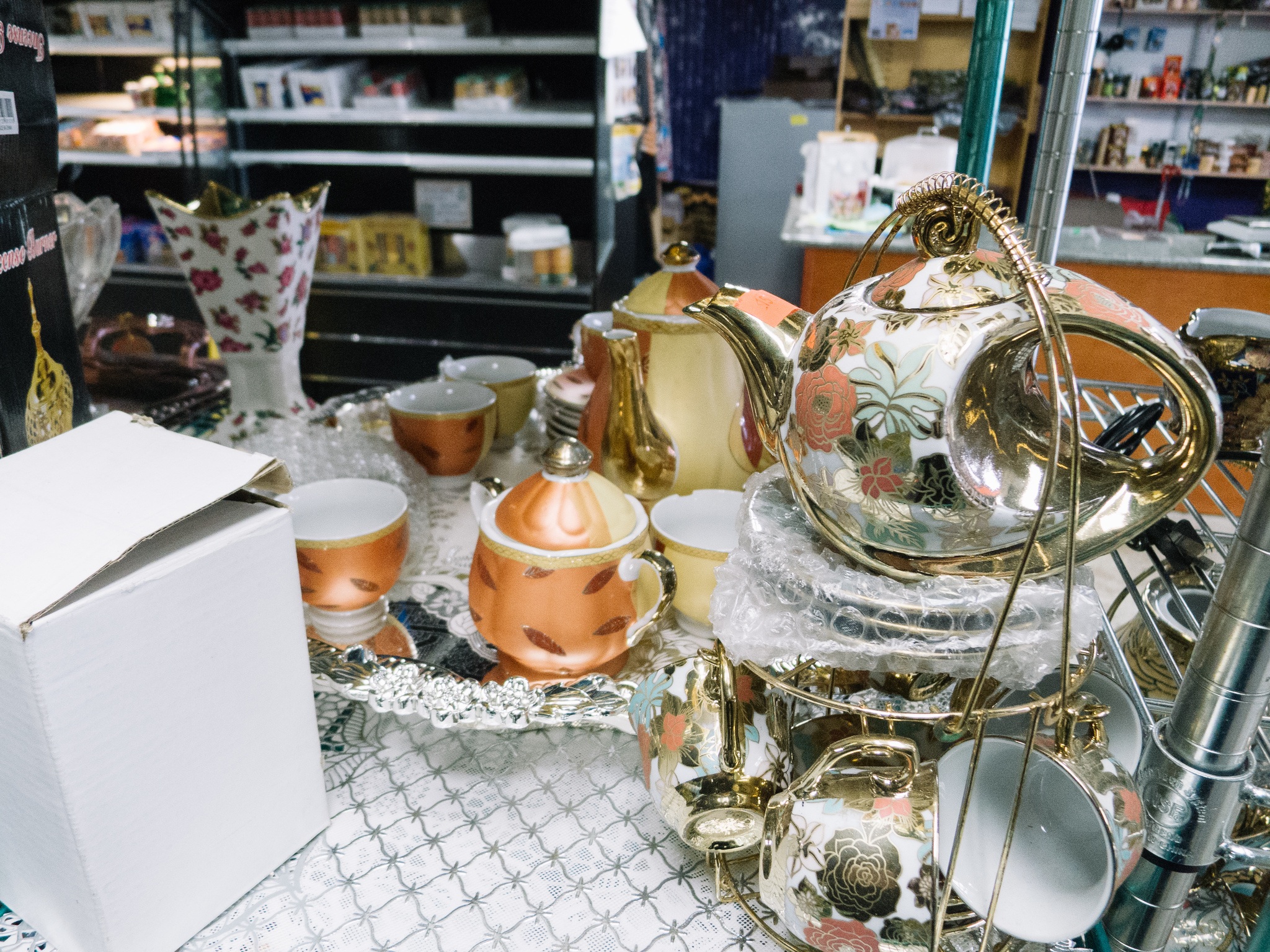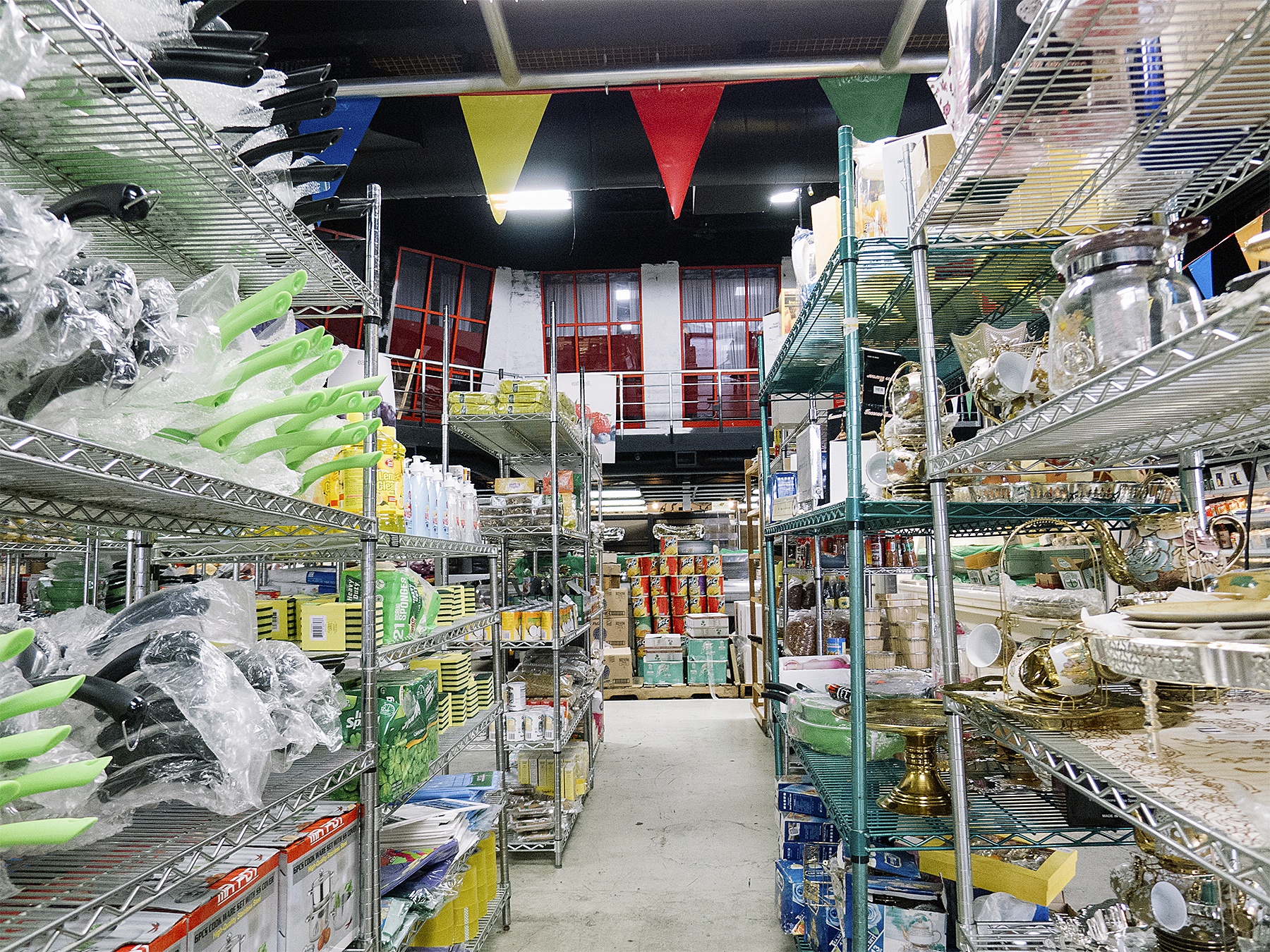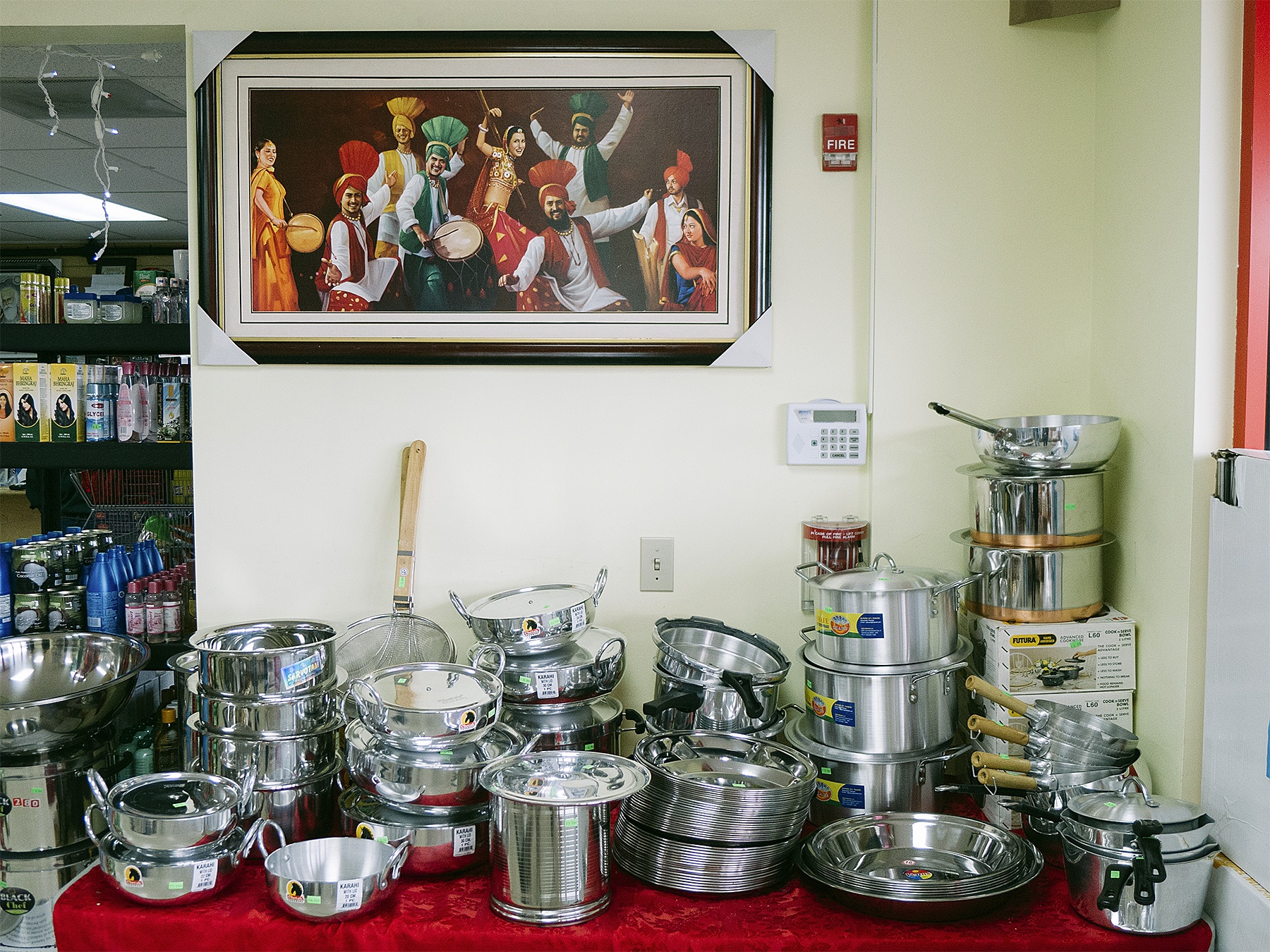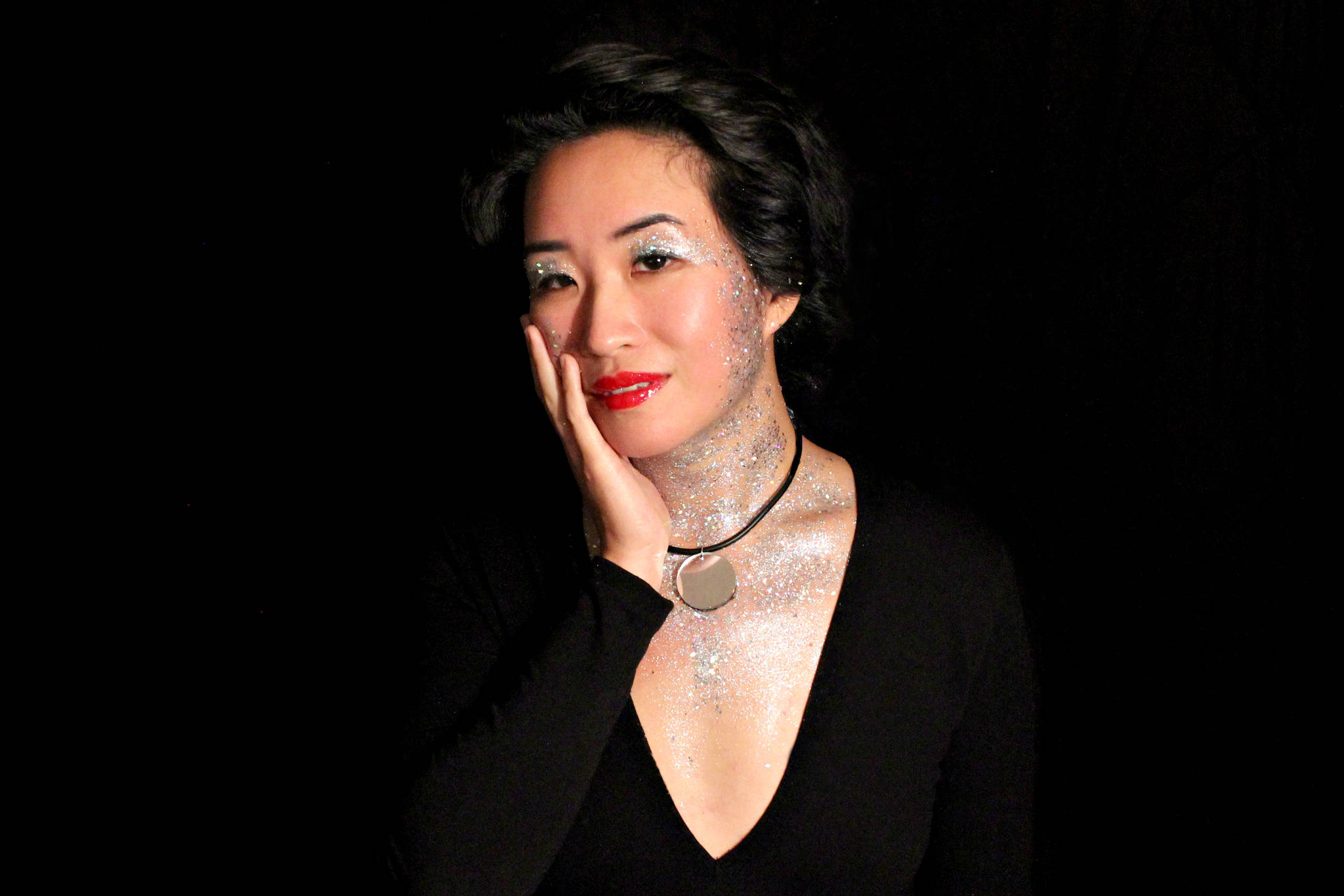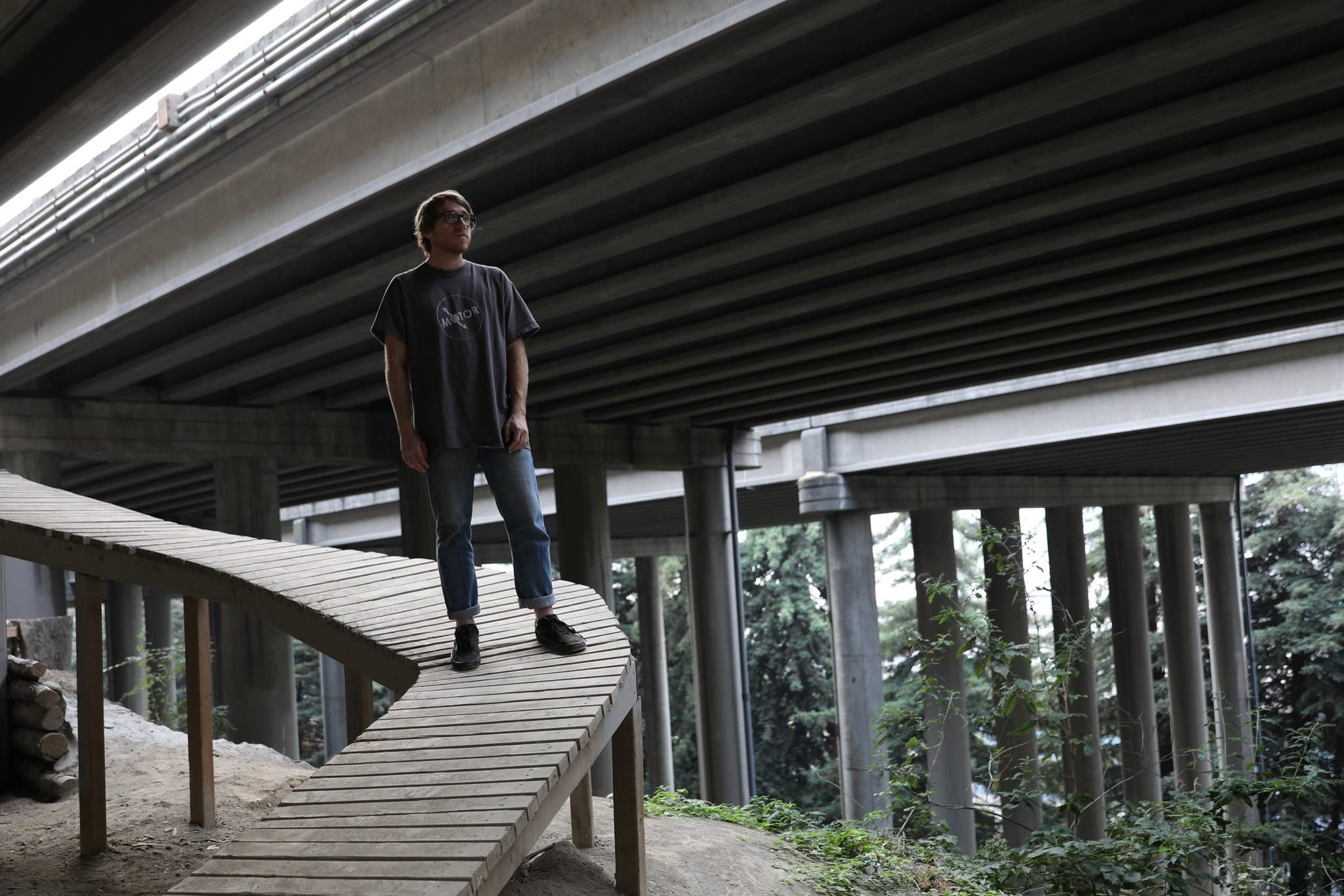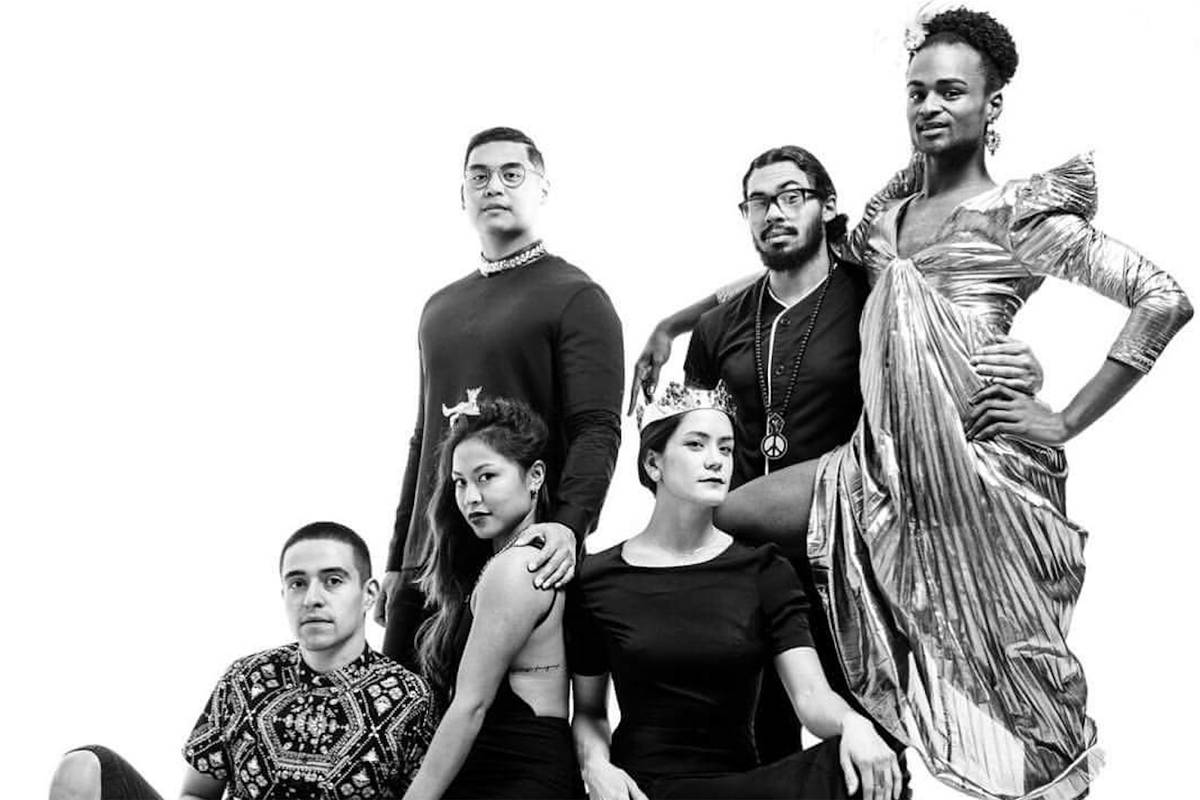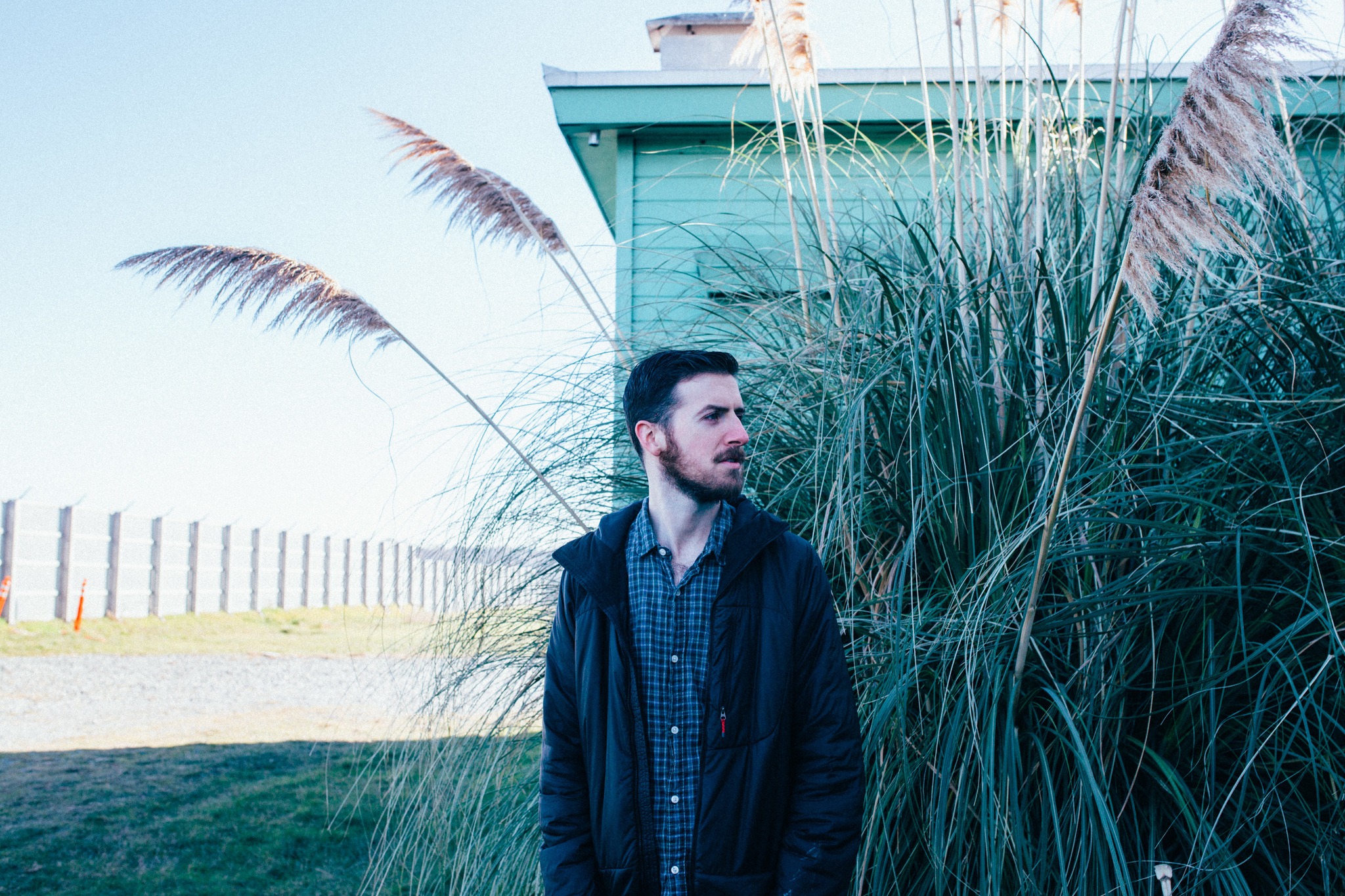If you ever start to feel that Seattle is just too small, try going 10 miles north or south. The entire metropolitan area is unknowably expansive and diverse—but, thanks to the light rail, a strip of it happens to be terrifically accessible. For a shopping destination this holiday season, we recommend one of the Link’s least-hyped stations: Tukwila International Boulevard.
The colossal glass station, just one stop before the train pulls into Sea-Tac Airport, is the tallest building around, rising from the sea of its own parking lot with a barren field next door. When it opened, this station was described in the press as “really, truly in the middle of nowhere.”
But if you cross Southcenter Boulevard and International Boulevard and walk about five minutes, you’ll find the commercial center of Tukwila’s large immigrant population (though the structure is technically located in SeaTac). This shouldn’t be surprising. Tukwila is the most diverse city in Washington (and 11th most diverse in America); according to the most recent census, 39.7 percent of residents are foreign-born. There’s a lot more here than just “a connection to the airport.”
The Bakaro Mall (15245 International Blvd.) is the centerpiece of the complex. Named after the biggest market in Mogadishu, Somalia, it comprises dozens of small stalls lining either side of two central aisles. The aisles meet in the back at a cafe and gathering space. The retailers who occupy the stalls sell jewelry, electronics, cosmetics, and religious objects, but Bakaro is really a destination for clothing. The stalls are tiny in size—maybe 5´ by 7´—but the vendors make good use of the vertical space and the high-hung garments line the walls and hallways, creating a dazzling quilt of colored fabric. This is a great place to find long, covering dresses, tunics, jilbābs, abayas, head coverings, and traditional East African and Muslim apparel for both men and women. Most of the clothing is imported, largely from Saudi Arabia and India, and varies from plain cloth to embroidered to sequined. Grab a tea from the cafe in back and come to buy.
SeaTac Market (15221 International Blvd.), another Somali-run business, is another vast world of merchandise. Housed in a warehouse-like ex-casino, it’s now a kind of cavernous general store, with everything from pieces of art to fresh produce and a full restaurant in back serving Eastern African cuisine (with the best lentil soup you’ll ever have). Come here for housewares—there are dozens of imported tea sets and serving implements. If you’re looking for a big-ticket item, they also have incredible furniture, like settees with carved wooden frames painted and upholstered in metallics.
Also beside the Bakaro Mall is India Plaza (15245 International Blvd. #113), an expansive Indian grocery store packed with potential gifts. Indian cookware like flat tava pans are available alongside hundreds of ingredients, but we recommend going for ready-made stocking-stuffers: fennel candy, boxed soan papdi, or light-pink rocks of salt from Pakistan that have all the beauty of quartz crystals for less than $3. India Plaza also has a collection of fresh, handmade mithai—Indian sweets—that will dazzle your guests or gift recipients. Try the kaju katli, a smooth cashew confection cut into diamonds and coated with edible silver leaf.
